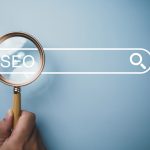There’s growing pressure to:
- pursue a more sustainable path
- find new partners to help overcome supply chain disruptions
- ease economic anxiety stemming from rising inflation
- demonstrate social justice through better DEI policies and practices
- adapt to rapidly changing customer preferences favouring brands that act responsibly
As leaders CEOs must make sense of the world, using those insights to develop strategies that help their organisation leverage its strengths to thrive. What lessons can be learned from the crises of the past 2+ decades, including the dot.com meltdown, the 2008 financial crisis, pandemics, war, and climate change?
It's tempting to retreat to default practices in the false belief that today’s crises shall one-day pass and life will return to normal. While we can’t predict the future, there is substantial evidence to suggest that we must transform the role businesses play in the world, including how they operate, if they are to help address today’s enormous challenges. I’ve worked with leaders and their organizations in more than 40 countries and one thing is certain: the age of the hero CEO who believes they can single-handedly fix things is gone (and good riddance). Today the best CEOs seek the wisdom of others in shaping their decisions. Here is what that wisdom says:
-
Ask good.
The most effective leaders ask questions that spark curiosity in others. What they don’t do is ask questions that make people defensive. Questions like “which area of our expertise can we harness that could create demonstrable value to help address X (name of problem)?” and “which other organizations do we admire that we would learn from and could work with to help solve X?” are far more motivating than “why didn’t you make quota?” or “how could you allow our margins to decrease?”, which are unproductive and demoralising.
In doing research for my book, I was intrigued by Norrsken, a Swedish organisation founded in 2016 that helps entrepreneurs create startups to address the biggest problems in the world today. They ask a simple, profound question, “how can we positively impact a billion lives?” Imagine how that simple question galvanizes people. Norrsken has since built a €120m+ fund, two hubs (one in Stockholm and the other in Kigali, with more coming), houses several hundred entrepreneurs and supports more than 30 startups focused on addressing the UN SDGs.
-
Define how your organisation creates meaning.
Consider the sense of purpose and catalyzing energy that is released when you and your colleagues believe your work has meaning; it inspires discretionary effort—that desire to do far more than is required or expected. Leaders must articulate how their organization creates meaning for employees and society.
Ravi Kumar is the President of Infosys. His global responsibilities are understandably vast. Within these, he sees enormous opportunity for companies to create positive, enduring, societal change above and beyond their core business activities. Among his focus areas is revolutionizing education, especially in today’s digital world. To this end, he is leading an effort to reskill and upskill people in the US, Europe, and Australia by developing new learning centres focused on helping people gain technical skills to prepare them for a new world of opportunities as digital innovations continue to transform how we live and work. Ravi is, in effect, creating meaning by giving value back to society through these uplifting, professionally rewarding education initiatives. By clearly defining your value meaning, you provide a compass heading that helps direct where your organization is going in its effort to create an enduring, positive impact.
-
Determine how you will measure progress toward your goals.
Identify how you will measure progress. Don’t be afraid to seek challenging measures and don’t castigate colleagues if some measures lack precision at first. Keep asking. People need time to reflect and ‘noodle’ the idea around in their heads. I found that, over time, precision improves. Despite this, I still see too many leaders let the tyranny of the urgent side-track their long-term strategy. With a crisis around every corner, it is easy to get distracted away from your organization’s long-term strategy on how to positively contribute to the world. Measuring progress can be further derailed when the Board lacks understanding and fluency in the areas you are seeking to address. This is especially true with sustainability, where unfamiliarity with the substance of the underlying drivers causes Boards and management to underinvest in helping solve it or, worse, dismiss it as someone else’s problem.
Enter Helle Bank Jorgensen. As CEO of Competent Boards, she helps Boards and senior management that are well-versed in financial matters gain fluency in sustainability that then informs their strategic decisions. Why is this important? For most of the past century business leaders have used financial performance as the ultimate measure of success. Unfortunately, this has too often had the perverse effect of focusing attention on manipulating financial levers to look good each quarter at the expense of doing the right things designed to strengthen the organization’s societal contribution over time. Helle and Competent Boards help leaders connect the strategic dots that will achieve goals and ultimately strengthen their organization’s reputation.
-
Mobilise the resources required to bring your plans to life.
Your company’s activities have been designed to optimize resource usage. Yet big crises and other unexpected negative surprises disrupt these designs, systems, and procedures for getting things done. Dealing with perpetual crisis is not served by an avoidance strategy that reinforces business as usual. We are now in an era of relentless business-not-as-usual. Given this, the best leaders have adjusted their mindsets to embrace agility, away from repeating the same practices over and over. This means rethinking and reimagining your business around ‘next practices,’ including bringing in ecosystem partners whose values and business models are more closely aligned with yours. By the way, those next practices are no longer bound by ‘lowest cost’ provider thinking, profit maximization, or enhancing shareholder wealth. Instead, they are animated by doing the right things that create demonstrable societal value.
Kevin Czinger blew up a century-old business model. The sector? Automobile manufacturing. He saw that we are using far more resources than can be replenished, and the auto industry is one of the biggest consumers of limited resources and raw materials. Rather than make incremental improvements in robotic assembly lines, he took a clean-sheet approach to the industry, designing a closed-loop manufacturing system that is far smaller, less wasteful, and with a lower carbon footprint. His company, Divergent 3D, developed a new and more sustainable approach to auto manufacturing they call DAPS – Divergent Adaptive Production System, protected by over 475 patent filings. It is a fully digitalized manufacturing system using AI that develops auto structures using purpose-built materials (put only where they’re needed) then assembles them with zero switchover time from one structure to the next. DAPS™ does not waste an atom of energy, literally. Materials can be re-atomized and turned back into a critical component. Kevin mobilized his team and ecosystem partners around a new business model and manufacturing techniques that radically alter how to make cars.
-
Do all of these things well.
The strategic choices you make are not a ‘this OR that’ trade-off; they are a deciding how to ‘do this AND that.’ The best leaders have integrated these to accelerate transforming their businesses into the kind of enterprises that deliver on creating positive societal value. It doesn’t have to take decades.
Ørsted is a superb example of this. This Danish firm transformed from an energy company dominated by fossil fuels in 2009 to one dominated by renewable energy today, overcoming market scepticism. The result? Their market capitalization doubled and Ørsted has been recognized as the world’s most sustainable energy company by Corporate Knights for four consecutive years.
- They asked a good question: how can we adapt to a world seeking responsible energy solutions?
- They found meaning in scaling renewable energy designs.
- Progress was measured against a goal of shifting from 85% conventional/15% renewable to 85% renewable/15% conventional.
- They mobilized investors, partners, customers, and employees around a multi-year transformation plan.
Follow these simple lessons and you’ll be better able to navigate most crises.
About the author
John A Davis is an award-winning academic, business leader and author of Radical Business: How to Transform Your Organization in the Age of Global Crisis published by Emerald.











